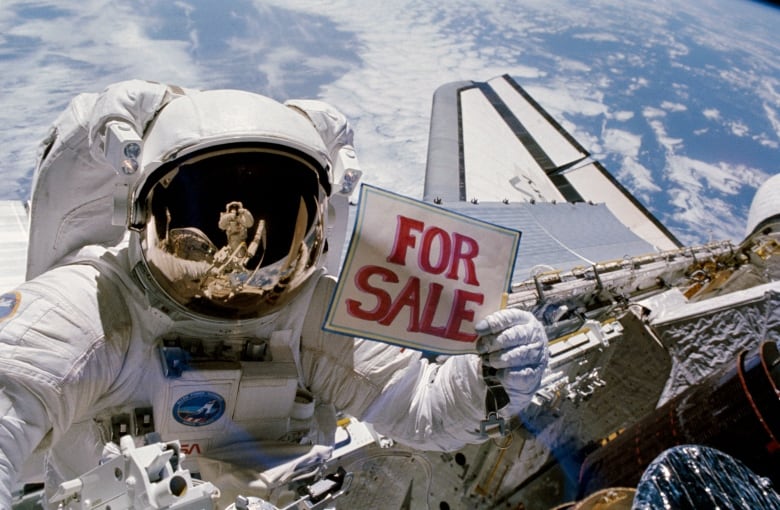A dozen bottles of wine were blasted into space this month. The man who sent them says he did it for science
Company hopes findings could help 'huge challenge' of producing food as Earth gets warmer

Entrepreneur Nicolas Gaume, whose company recently blasted a dozen bottles of red wine into space, is hopeful the experiment could offer insights into how to grow food in a changing climate.
Wine "evolves and continue to evolve even after it's been bottled," which makes it "an interesting ecosystem to study," said Gaume, CEO and co-founder of Space Cargo Unlimited, a European startup "dedicated to leveraging the potential of space-microgravity research for commercial applications."
Earlier this month, the company launched 12 bottles of Bordeaux wine from a NASA site in Virginia, destined for the International Space Station. The unusual payload follows NASA's announcement in June that it was opening up parts of the International Space Station to commercial opportunities.
In the absence of Earth's gravity, the wine will be subject to immense stresses, Gaume explained. His company hopes these stresses will cause the wine's ecosystem to adapt.
"You're going to see accelerated evolutions — different evolutions, natural evolutions — really nature showing us the way or how things could evolve," he told The Current's Laura Lynch.

The bottles will be retrieved from space in a year's time, and compared to identical bottles that have been kept on the ground.
Gaume hopes their findings could help the "huge challenge" of producing food as the Earth gets warmer because of climate change.
"Most of our research will be given back to the scientific community," he told Lynch.
He said he was looking to find the right balance in terms of scientific endeavour, and "what a privately led initiative can bring in terms of innovation and creative thinking."
Investment would let NASA be 'ambitious'
Giving private companies a stake in outer space could let scientific organizations focus on bigger projects, said Tim Fernholz, author of Rocket Billionaires: Elon Musk, Jeff Bezos and the New Space Race.
"Right now we spend a lot of money on research in space — we learn a lot — but there's also a sense that we're missing opportunities," said Fernholz, who is also a senior reporter with digital publication Quartz.
Entrepreneurs interested in space are arguing that a capitalist, free market model could make the most of those opportunities, he told Lynch.
"Space agencies are eager because they want to move their money towards the next big thing."

Fernholz noted NASA has stated that it wants to become "one customer among many" in orbit.
"There would be a space station in orbit, maybe operated by a private company or a consortium of private companies, and NASA would be a customer that would send astronauts and research up," he said.
"But then so would maybe the Canadian Space Agency, or the U.A.E. space agency or a university, or, Merck, the pharmaceutical giant, or whoever."
If we get it wrong, we're not going to have the science and exploration that has been benefiting people on Earth since the Apollo program- Tim Fernholz
If those companies help cover the cost of operations, "NASA can do more ambitious stuff — go to the moon, go to Mars," he said.
"A big part of the space program has always been incentivizing technology development and economic growth, and this is another way for NASA to do that."
However, he said there is a risk that space exploration would become the sole domain of those who can afford it, or that research takes a back seat to commercial interests.
"If we get it wrong, we're not going to have the science and exploration that has been benefiting people on Earth since the Apollo program," he told Lynch.
"Maybe it will be debauchery ... and just another sign of inequality, or maybe we'll invent a new miracle cancer drug.
"Or maybe both."
Written by Padraig Moran. Produced by Jennifer Keene.